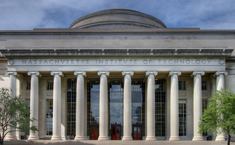
Project: Korea CCS 1&2
Company/Alliance: Korea Carbon Cpature and Sequestration R&D Center (KCRC)
Location: Korea
Feedstock: Coal
Size: 500 MW (oxyfuel) or 300 MW (IGCC)
Capture Technology: Oxyfuel or Post-combustion
CO2 Fate: Offshore deep saline aquifers: Ulleung deep saline formation or the Gorae gas reservoir
Timing: Start: Plant 1 (2016) Plant 2 (2018)
Motivation/Economics: Total Budget: 172 billion KRW (from the Korean government)
Comments:
In July 2010, the Korean Government announced a national framework to develop CCS, with the aim of developing two commercial-scale plants by 2020. The estimated operation date for their first project (post combustion on a coal-fired power plant) is 2016, and the estimated operation date for their second project is 2018 (pre or oxy-fuel combustion on a coal-fired power plant or 300 MW IGCC plant). The projects are aimed to capture 3 Mt/yr or at least 1Mt/Yr by 2017.
The Ministry of Knowledge Economy, other Ministries and industry are working to survey 3-4 deep saline formation storage sites, including the Ulleung deep saline formation and the Gorae gas reservoir.
The main objectives of this project are to secure original technologies to capture and store CO2 with the additional cost of less than 30% of operating costs of large CO2 emitters such as power plants
Korea has tested an emissions trading scheme (ETS) since January 2010. This scheme will take effect on 1 January 2015. The ETS will target major companies that emit more than 25,000 tonnes of CO2 per year (estimated between 366 and 450 companies).
Project Link: Korea Carbon Capture and Sequestration R&D Center (KCRC) web page
Other Sources and Press Release:
Korea CCS Research Center opens a €15 million call for proposals (April 2013)